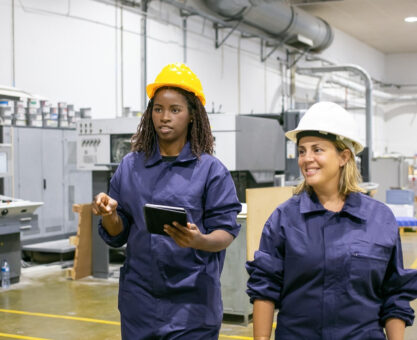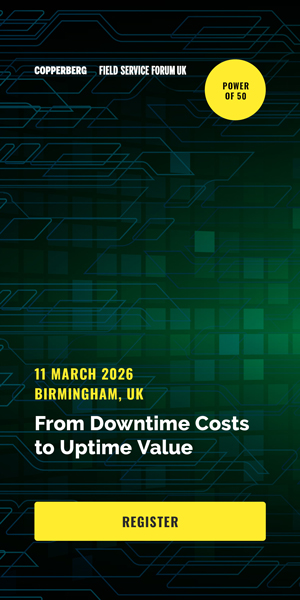The two generations that now co-exist within the field service workforce, the ageing ‘boomer generation and the millennial generation that are replacing them, have considerable differences in their general approach to working life, but they can also compliment each other well, with both sets of workers bringing a different set of skill and values to the table…
“If we look at the technicians we have in the house right now, particularly the older more seasoned technicians we have in our workforces, a lot of knowledge that they have and performance they have learnt in the old fashioned ‘boomer’ way as opposed to the knew ‘millennial’ way.”
This was Coen Jeukens, VP Global Customer Transformation, ServiceMax, opening statement during our March 2020 Think Tank Session.
“They (the existing field service workforce of the ‘boomer generation) went to a class room and learned everything they needed to upfront,” Jeukens continued.
“Compare this to the younger generations. The millennials and now Generation Z are entering the workforce and they are learning in a different way. They want to use technology in a different way and so maybe when we start applying the technology we can take a way some of that tribal knowledge which is right now traditionally trapped inside the head of a technician by going to world that is more fact based and data driven.”
Indeed, the scenario that Jeukens outlines is one that every field service management professional reading this will likely recognise. The challenge of managing the shift from the ageing ‘boomer workforce reaching retirement is not merely one that boils down to the logistical challenges of such a seismic shift in outgoing and incoming workforces – although this, in and of itself is indeed for many organisations a challenge.
“We do see a difference in how the older and younger technicians are able to utilise the data and newer tools…” Patrick Jansen, VBR Turbines
This generational shift is also requires a radical rethinking of how we approach training of a new generation with a vastly different baseline skill-set to those who they are replacing.
However, the emergence of data as the go to tool for overcoming many of the issues faced by field service organisations can also bring a potential to this key area of concern for those field service organisations trying to find equilibrium between the two disparate generations.
“We do see a difference in how the older and younger technicians are able to utilise the data and newer tools,” explained Patrick Jansen, Field Service Manager, VBR Turbines commented as the group shared their thoughts on this particular challenge that many field service companies face today.
“The younger engineers are able to translate the data that they are receiving to what is actually going on much better than the older engineers. However, we are also seeing that if these different sets of engineers work together, the older engineers learn a lot from the younger engineers, but also the younger engineers are learning a lot from the older engineers,” Jansen added.
It is this balance of the old and new ways of approaching field service calls that is allowing VBR Turbines to leverage benefits that are ultimately borne from viewing the workforce as more than the sum of its parts and one in which there is a two way layer of co-learning.
“The balance is certainly shifting, but it is not that one is bad and the other is better per se, but that the two different approaches between the generations are complimentary to each other…” Patrick Jansen, VBR Turbines
“In the past, conclusion about the behaviour of an asset was really based on the experience of the field service engineer ,so what they had seen before. Now, we see that the younger engineers do not have the detailed understanding of the assets that the older engineers do, but they come to better conclusions because they are really fact and data based rather than relying on the knowledge that they have seen in the past in what might have been a different situation,” Jansen continued.
“The balance is certainly shifting, but it is not that one is bad and the other is better per se, but that the two different approaches between the generations are complimentary to each other,” he concluded.
It is interesting to not only see how much the younger generation of field service engineers within VBR Turbines are able to harness the power of data from the assets they are employed to work on, but also how this approach is being viewed within VBR Turbines as something that is complimentary to the deep levels of experience in their older generation, rather than an entirely new approach designed to replace the established methods that have also served them well.
It is an excellent way of ensuring that they are able to continue harnessing the core tribal knowledge of their ‘boomer field service engineers while also implementing a more modern approach that can facilitate the more rapid development of the newer recruits into their field service workforce.
Want to know more? There is an Executive Briefing from this Field Service Think Tank Session which is available in the premium content library.















